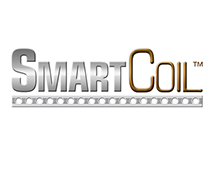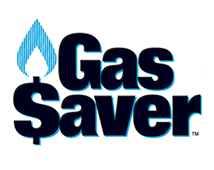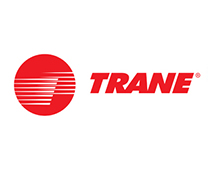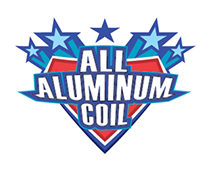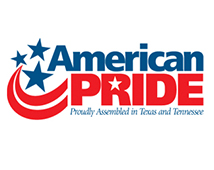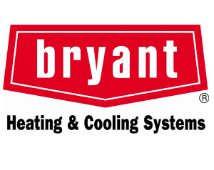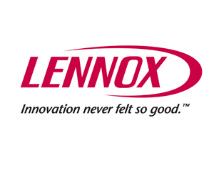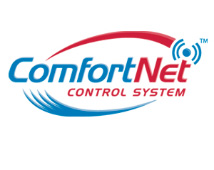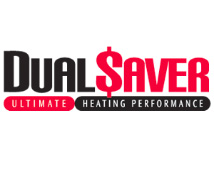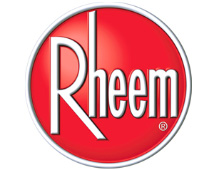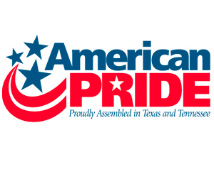CALL US: (301) 861-6237
Request ServiceWhat are some preventative maintenance things I should be aware of?
With the proper attention, heating and cooling systems can keep you comfortable year-round. Heat pumps and oil-fired furnaces and boilers need a yearly professional tune-up. Gas-fired equipment, on the other hand, burns cleaner and can be serviced every other year. A close inspection will uncover leaks, soot, rust, rot, corroded electrical contacts and frayed wires. In furnace (forced-air) and boiler (hot-water) systems, the inspection should also cover the chimney, ductwork or pipes, dampers or valves, blower or pump, registers or radiators, the fuel line and the gas meter or oil tank — as well as every part of the furnace or boiler itself.
Next, the system should be run through a full heating cycle to ensure that it has plenty of combustion air and chimney draft. Finally, cleaning the burner and heat exchanger to remove soot and other gunk will prevent such buildup from impeding smooth operation. For the burner, efficiency hinges on adjusting the flame to the right size and color, adjusting the flow of gas or changing the fuel filter in an oil-fired system. A check of the heat pump should include an inspection of the compressor, fan, indoor and outdoor coils and refrigerant lines. Indoor and outdoor coils should be cleaned, and the refrigerant pressure should be checked.
How many pounds of refrigerant does a central air conditioner hold?
It is not possible to give a precise answer, since central air conditioning systems use condenser and evaporator units separated by variable lengths of tubing, depending on the particulars of an installation.
Most units hold 4 to 6 lbs of refrigerant. Systems can take up to 18lbs, depending on the make and model and depending on the cooling capacity (2 ton to 4 ton). Check the data plate on condenser it will tell you the exact ounces it holds. Then you must adjust the charge up from what the nameplate says to compensate for the piping between the two components of the unit.
What causes the evaporator to freeze?
The evaporator may be dirty or the condenser (outside unit) may be dirty. You may be low on “freon”, indicates a possible leak. Check the filter.
Will a programmable thermostat reduce your heating and cooling energy consumption?
Yes, programmable thermostats can reduce the energy used for air conditioning or heating by 5 to 30%. Programmable thermostats save money by turning the air conditioner to a higher setting (or heater to a lower setting) when no one is present in the house, or in the evenings when it is cooler.
Is it safe to block an air intake grill that seems to be causing a room to remain cold while the rest of the house is warm?
You would have to know the following: cfm (cubic foot per minute) requirements of the system (for example, a 3 ton system requires 1200 cfm). Next you would have to calculate what the size the opening would be (another example, 1200 cfm requires an opening that is 16″ x 12″). If you block off too much return air (or supply, for that matter) you can cause serious problems on the cooling side, and potentially unsafe conditions on the heating side.
If I replace my old air conditioner with a new one, will it help me to lower my energy bill?
If you have a machine from the 90’s the SEER rating of 10 SEER current regulations require a minimum of 14 SEER which will cause an increase in energy savings. Many studies show installing a new HVAC system can reduce utility Bill’s by as much as 20%. Depending on home and usage, you could be saving over $1000.00 a year.
How much will it cost to install a new air conditioner?
It is impossible to quote a price without first checking conditions at the job site. We simply cannot determine what the price will be without this first step. Price will be influenced by the size, SEER rating, and location of the new unit as well as whether or not the existing furnace, electrical panel, and ducts are suitable for air conditioning or if they must be replaced. We don’t charge anything to come out to your house and give you a written proposal, customized especially for your situation, showing you your prices and your various choices. In almost all cases the proposal is written up for you on the spot with no waiting to receive it in the mail.
After I have a new air conditioner installed will it require any maintenance?
We suggest that if you have a combination heating and cooling system you have us come out and do a Preventative Maintenance with cleaning on the system every six months.
What is a heat pump?
A heat pump is a HVAC compressor that cools outside and heats inside. The unit has a reversing valve that changes the direction of the freon flow. It is cheaper to operate than a resistive heating circuit alone. It will work efficiently until the temperature drops below 38 degrees. When the temperature drops below the magic number, the restive heat is more effective. In theory the heat pump will work at 32 degrees, but the heat produced is very little.
How important is adding humidity to my home?
As we heat our homes, the air has a tendency to dry out. This dry air can damage the woodwork and furniture you have in your home as well as zap the moisture from your skin. Dry air even makes you feel cooler because your body senses heat as a combination of temperature and humidity. Adding humidity to offset this drying process will improve your comfort as well as preserve the woodwork in your home. As an added benefit, you may actually be able to lower your thermostat a couple of degrees. You will not only feel warmer but you may actually lower your heating bill!
Adding this much needed moisture will make your home a healthier and more comfortable place to spend your time. Contact us and we will be happy to discuss your choices and provide you with pricing for adding a humidifier to your home.
How important is an air filter in my heating and cooling system?
It’s a fact: the trapped air we breathe in our homes can be loaded with dust, pollen, plant spores, and other pollutant particles. In many cases, it’s worse than the air outside.
How often should I change my furnace filter?
If your furnace has a standard (replaceable) filter, change it once a month. If you have an electronic cleaner, clean it every three months. If you have a whole house HEPA cleaner, you need to replace it once a year.
Should I get my ducts cleaned?
Cleaning your ducts may be beneficial in improving your indoor air quality. A premium whole-house duct cleaning will help decrease the spread of contaminates in your ductwork and home. New construction homes can benefit from having the ductwork cleaned to remove drywall dust, sawdust and other debris from the construction process.
I have friends and relatives that have installed UV lights on their furnace. What are they for and why do I need one?
UV is the abbreviation for ultraviolet. Located in the return air ductwork and by the indoor cooling coil, the ultraviolet air treatment system continuously emits high – intensity ultraviolet (UV) energy. The energy eliminates (kills) a very high percentage of airborne bacteria and germs passing over the UV light field inside the ductwork. The UV light mounted next to the indoor cooling coil will help eliminate the growth of mold, mildew and other contaminants from the drain pan and coil surface
How does an air conditioner work?
An air conditioner transfers heat from the inside of a building (where it is not wanted) to the outside. Refrigerant in the system absorbs the excess heat and is pumped through a closed system of piping to an outside coil. A fan blows outside air over the hot coil, transferring heat from the refrigerant to the outdoor air. Because the heat is removed from the indoor air, the indoor area is cooled.
What is Puron?
Puron is a new generation of refrigerant that does not contain chlorine. The EPA states that chlorine is the chemical responsible for destruction of the Ozone layer of our atmosphere. Although Puron is non Ozone depleting it is still considered a greenhouse gas and should only be handled by an EPA certified technician.
When is it time to replace my heating and cooling system?
According to the Energy Star experts, certain telltale signs indicate it’s time to consider replacing heating and cooling equipment, or improving the performance of your overall system. It may be time to call a professional contractor to help you make a change if:
Your heat pump or air conditioner is more than 10 years old.
Consider replacing it with a unit that has earned the ENERGY STAR label. Installed correctly, these high-efficiency units can save up to 20 percent on heating and cooling costs.
Your furnace or boiler is more than 15 years old.
Consider replacing with an ENERGY STAR qualified furnace, which is 15% more efficient than a conventional furnace. If you have a boiler, consider replacing with an ENERGY STAR qualified boiler that is 5% more efficient than a new, standard model.
Your equipment needs frequent repairs and your energy bills are going up.
Your cooling or heating equipment my have become less efficient.
Some rooms in your home are too hot or too cold.
Improper equipment operation, duct problems or inadequate insulation could be the cause.
No one is home for long periods of the day and you do not have a programmable thermostat.
Install a programmable thermostat or have a good contractor install one and instruct you on its use — to start saving energy and money while they’re away or sleeping.
Your home has humidity problems.
Poor equipment operation, inadequate equipment, and leaky ductwork can cause the air to be too dry in the winter or too humid in the summer.
Your home has excessive dust.
Leaky ducts can pull particles and air from attics, crawl spaces and basements and distribute them throughout your house. Sealing your ducts may be a solution.
Your heating or cooling system is noisy.
You could have an undersized duct system or a problem with the indoor coil of your cooling equipment.
What is done during an annual furnace maintenance?
Annual Furnace Maintenance Get ready for Winter by having your heating unit serviced. To keep your furnace running at optimal efficiency, have our technicians perform a comprehensive 13 point checkup.
- Inspect Thermostat
- Check Air Filters
- Check & Clean Burners
- Check Heat Exchanger
- Check Vent Pipe & Duct Work
- Check Air Flow
- Check Safety Switches
- Check Control Voltage
- Check Elements & Wires
- Check Furnace Operations
- Check Inducer Motor & Housing
- Check Gas Pressure
- Oil & Inspect Blower Assembly
What is replacing Freon (R-22)?
R-410A is the refrigerant of choice to replace Freon (R-22). It is environmentally friendly and cools equally to R-22. You may have heard it called PURON
How do I clean an electronic air cleaner?
Spray it with Fantastic or 409 cleaner, let it dry and reinstall it. Or put it in your dishwasher. Use a soap that leaves no film and be sure to protect the thin “piano” type of wires in the cleaner from the spikes in the dishwasher tray. One way is to set the cleaner on top of glasses that are placed over these spikes in the dishwasher.
How often do I need to recharge my system?
Never. Your A/C or Heat Pump does not “use up” refrigerant. So you should never need to recharge your system- Unless there is a leak. If a company tells you it just needs to be recharged you are either being scammed or the tech is incompetent (or both). Neglecting to find and/or fix the leak is like knowing there is a nail in your tire but just filling up the tire with more air instead of taking the nail out and fixing the hole.
Should I cover my O/D unit in the fall and winter?
You should never operate an outdoor unit when it is covered. Covering the unit during operation will impede necessary air flow and can cause damage to the system.
How often do I need to change my air filter?
Manufacturers and Energy Conservation Experts agree. If using disposable filters (this includes those expensive “hi-efficient” filters), you should replace them every month.
Other experts offer other advice, but the general consensus is that the filter should be checked monthly and cleaned or replaced as needed. At the very least every 3 months.
Every home and household is different. A very active house with young children and/or pets will need to replace their filter more often than a more serene household of working adults.
What if I have a Media Air Filter?
Media Air Filters are not normal filters. You should expect to replace you u media every 6-9 months, different lifestyles and households still applies.
We suggest making a habit of inspecting and changing as needed at the beginning of the A/C and Heating season.
It is important to change your air filters as a clogged air filter can cause damage to your system.
Why are some rooms hotter (or colder) then the rest of the house?
- Dirty air filter restricting airflow
- Closed/Covered air vents
- Air duct issues caused by crushed or kinked supply ducts
- Overexposure to sunlight
- Unbalanced Air
Causes of unbalanced air can be:
- Dampers- dampers are valves that let you accurately adjust the amount of air going to each room or part of the house. Usually located in the duct near the unit. Check dampers are adjusted properly.
- Inadequate return- Many homes have 1-2 return vents which suck in the warm (or cold) air. Try leaving all doors open to allow air to circulate properly.
What are some helpful HVAC Tips that I can use to save money and help the environment?
Please visit our HVAC Tips page for more information.
**Information on our website is free of charge. B & E Heating and Air does not assume liability resulting from information provided. We hope this information helps make you a more educated customer. If you are experiencing a problem please let us know.
Web Specials
Senior Citizen Discount
10% off
* Can not be used with any other coupons.
Military Personnel w/ Proper ID
10% off
* Can not be used with any other coupons.
Federal Workers w/ Proper ID
10% off
* Can not be used with any other coupons.
Service Call w/ Any Repair
$30 off
* Can not be used with any other coupons.
New Air Conditioner or Furnace Installation
$500 off
* Can not be used with any other coupons.
New Air Conditioner and Furnace Installation Combo
$1000 off
* Can not be used with any other coupons.

